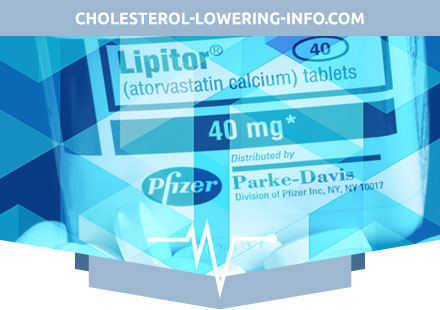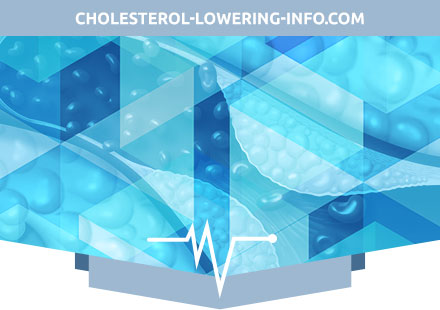General Overview:
Atorvastatin also is known as Lipitor is a drug or medication which in high cholesterol condition. The purpose of Lipitor is used increase the “Good” cholesterol or high-density lipoprotein (HDL) cholesterol level in the blood and lower the levels of “Bad” cholesterol or low-density lipoprotein (LDL) cholesterol in the blood. As a result, it lowers the risk of heart attack and stroke.
The drug/medicine belongs to the group “Statins” drugs. The medicine is effective in lowering and reducing the overall amount of cholesterol which is produced by our liver. The drug only works on the triglycerides, low-density lipoproteins (LDL) cholesterol, and very low-density lipoprotein (VLDL) cholesterol. It reduces the level of these cholesterols and as a result, the level of high-density lipoprotein (HDL) cholesterol increases.
How to Use Lipitor?
Lipitor should only be taken when prescribed by the doctor. Also, it should be taken in the prescribed dosage. Lipitor should be taken by mouth normally one time a day. It can be taken with or without eating food.
Lipitor is effective if it’s taken along with a proper, healthy and balanced diet followed by regular exercise. A daily walk, cycling or swimming boosts up the effectiveness of the drug. Also, it is very necessary to avoid the saturated fats and Trans foods to lower the levels of bad cholesterol in our blood.

The dosage of Lipitor is only to be determined by the doctor on the basis of severity, medical condition, response and age of the person. A person who are taking Lipitor are suggested to tell there about other their other problems and other medications which they are taking.
The persons who are prescribed with Lipitor are required regular take the drug and follow their proper diet and do regular exercise. Make sure to take the medicine on the same every day. It takes about 4 weeks for the drug to fully benefit the person. It is advised to take Lipitor even after you feel well because usually, people with high cholesterol or triglycerides do not feel sick.
Are there Any Side Effects of Lipitor?
Mostly people taking atorvastatin do not show no or any serious side effects. Although rarely some people may experience mild side effects of Lipitor. The possible side effects of the drug Lipitor are listed below:
- In some cases, people using Lipitor may experience mild memory problems or confusion.
- Because Lipitor belongs to the drug group statins, it can rarely cause or worsen diabetes.
- Very rarely the drug can lead to serious health problems like rhabdomyolysis and autoimmune myopathy.
- Side effects of Lipitor also include certain muscle pains and problems.
- Tenderness
- Weakness usually followed by fever & tiredness
- Change in urine color and amount – an indication of a kidney problem.
- Yellow eyes, pale skin, dark urine followed by severe abdominal pain and persistent nausea and vomiting – signs of liver problems which is very rare.
- Rare but possible serious allergic reactions such as rash, itching, swelling around the face, tongue or throat
- Severe dizziness and breathing trouble.
If you or someone using Lipitor shows any of the side effects, it is advised to immediately consult your doctor, physician or pharmacist. The doctor may prescribe another dosage of the drug or asks you stop using the medication depending upon the side effects and severity of reactions.
Some people show mild side effects such as nausea, vomiting or dizziness in the early days of treatment but later these side effects go away.
Precautions You Need When Taking Lipitor:
Certain precautions are required when you are using atorvastatin. These precautions help to avoid any further complications or allergic reactions.
- The first and foremost thing is to tell your doctor about your medical history. If you have any liver, kidney, stomach or heart problems tell your doctor about them as well as any medication you are taking for cholesterol problem.
- People who use Lipitor drug are advised to avoid drinking grapefruit juice or eating grapefruit during their course of medication. Because it is believed that grapefruit or grapefruit juice can increase the level of Lipitor in the bloodstream which can lower the cholesterol level below the normal level.
- If someone is using other drugs/medication for high cholesterol such as cholestyramine or colestipol (bile acid-binding resins) then he/she should take atorvastatin either 1 hour before or at least 4 hours after taking such medications. Otherwise, the medications/products will react with Lipitor and reduce its absorption rate.
- Pregnant or breastfeeding women should not take Lipitor (atorvastatin). The drug is quite effective to harm the unborn baby. If you are using the drug and conceive in during the course of the drug immediately consult your doctor. To avoid this situation it is advised to use birth control measures during the course of medication or treatment.
- Although it is not clear whether the medicine passes into breast milk or not, still breastfeeding mothers are advised not to take Lipitor during breastfeeding time to avoid any problem.
- Another precaution for people who are using Lipitor (atorvastatin) is to limit their alcohol consumption and quit smoking. Daily or excessive consumption of alcohol increases the risk of liver problems. But when combined with atorvastatin the risk increases greatly.
- If due to any reason you missed your dose do not take a double dose the next day. Neither takes the medicine at different times. Make sure you are taking Lipitor at the same time regularly. The overdose of this medication can cause severe nausea, dizziness, vomiting, and abdominal and stomach pain.
- Persons who are using Lipitor are advised not to share their medication with another person. This medication, its amount and dosage are only to be taken on the advice of the doctor. Moreover, the drug should not be flushed or drain. It should be disposed of properly.
High Cholesterol
The human body requires a normal amount of cholesterol for healthy cells. Cholesterol is a waxy substances which is makes lipids/fats in our blood stream/cells. Although our body requires cholesterol but High Cholesterol is not healthy. It can either be inherited or may be a consequence of poo unhealthy lifestyle. High cholesterol is treatable and preventable. But if remains unchecked it can cause many health issues but is the main cause of many cardiac issues.
Types of Cholesterol
Cholesterol in our body needs lipoproteins (lipids & proteins) to travel through our bloodstream. On the basis of lipoproteins cholesterol has been classified into two major categories, known as the Low-density lipoproteins (LDL) and High-density lipoproteins (HDL). The difference in both of these types is the ratio of proteins.

The High Density Lipoproteins also refer as the “Good” cholesterol has a low level of cholesterol and high protein ratio. While the Low Density Lipoproteins has a low protein ratio and high cholesterol level and therefore LDL are considered as the “Bad” cholesterol. A third category of cholesterol of lipoprotein is also preset in our blood stream, the Very Low density lipoproteins (VLDL).
Both the LDL and VLDL elevates the cholesterol level in our bloodstream and causes plaque deposition along the walls of arteries. As a result of this fatty deposition the risk of strokes, heart diseases and peripheral artery diseases.
Why is High Cholesterol Dangerous?
High Cholesterol is a condition in which our blood cholesterol level increases. This elevated amount of Cholesterol increases the risk of heart diseases, stroke and peripheral artery disease. These diseases are caused due to the deposition of cholesterol in the blood vessels which forms a plaque (fatty deposition).
The plaque deposition increases over the time and resulting in atherosclerosis, a condition in which the arteries get narrow and blood flow decreases. The decreased blood flow also restrict the supply of oxygen which can lead to a heart attack. Moreover if the plaque inside the artery ruptures/breaks it can form a clot which can cause myocardial infarction, heart attack and even stroke.
High cholesterol not only increases the risk of cardiac diseases and strokes but it also contributes in many of the liver diseases too. Because 80% of cholesterol in our body is produced by the liver. In case of high cholesterol it gets accumulated on the liver and suppresses its functionality which can lead to other health problems.
Causes of High Cholesterol:
The major cause of high cholesterol might be inheritance or unhealthy life style. Mostly high cholesterol is the result of poor and unhealthy lifestyle. Factors that can cause high cholesterol in are listed below:
Poor and Unhealthy Diet: Unhealthy and irregular food habits is one of the major cause of high cholesterol. The food which contains high level of cholesterol includes the animal products (saturated fats), commercially baked cookies & crackers (trans fats), red meat and full-fat dairy products.
Obesity: Obesity is the result of unhealthy and improper food habits and inactivity. A person whose body mass index is either 30 or greater are more prone to high cholesterol.
Lack of Exercise or Inactivity: regular walk and exercise act as the boosters for HDL/good cholesterol of our body. Exercise reduces the size of the particle which makes LDL/bad cholesterol in our body. But lack of exercise leads to increase in the size of LDL and causes high cholesterol.
Smoking: Smoking is not only injurious to our lungs but also damages the walls of arteries and veins. The damaged blood vessels can easily accumulates fatty/plaque deposits. Also smoking also burns the HDL in our blood stream. Both of these factors ultimately leads to high cholesterol.
Diabetes: Persons who suffers from diabetes are also susceptible to high cholesterol if their diet goes unchecked. Because high blood sugar levels means low HDL and high LDL. Just as smoking damages the walls of blood vessels, high blood sugar also damages the linin of blood vessels which are likely to accumulate plaque.
Symptoms of High Cholesterol:
Usually there are no significant symptoms of high cholesterol. Therefore physicians recommends a regular cholesterol check. High cholesterol can only be detected by a blood test. The age for first screening of the cholesterol can vary, and retesting is performed every 5 years.
Persons who already suffers from cardiac problems, diabetes, and blood pressure, do smoking or has a family history of high cholesterol are recommended to have their cholesterol level checked frequently.
High Cholesterol Is Preventable & Treatable:
It is said that “precaution is better than cure”. There are simple ways to avoid the high cholesterol condition. People who has a healthy lifestyle are less susceptible to high cholesterol. Preventive measures for avoiding high cholesterol levels includes:
- A balanced and healthy diet which has low salts, more fruits, whole grains and vegetables.
- Use of good fats and limited use of saturated fats.
- No smoking and alcohol consumption.
- Regular walk and daily exercise for at least 30 minutes.
These are measures which can not only prevent the high cholesterol but are also very effective treating the high cholesterol. In some cases the doctors might prescribe a medication for treating the high cholesterol. But it does not mean that every person requires medication for treating the high cholesterol. The dosage of the medication depends on the condition of the patient.
Prevention and treatment of high cholesterol is very important because if it remains unchecked it can lead to severe health problems such as cardiac arrest, angina or strokes. All these health issues are serious and might lead to death of the person. Therefore it is very critical to monitor the cholesterol level in our blood.
 AU
AU UK
UK CA
CA DE
DE FR
FR IT
IT ES
ES



